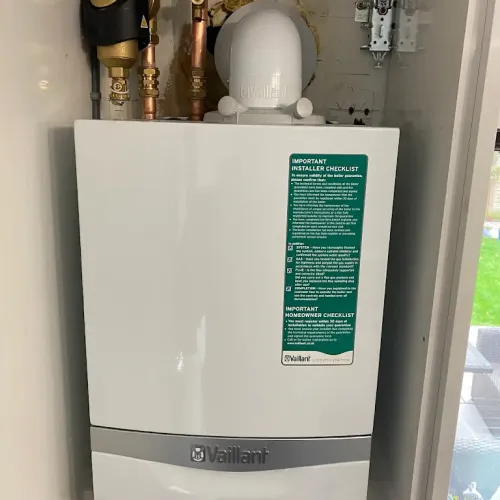Boiler Installation Newbury
Welcome to DWM Plumbing & Heating! Our expertise lies in providing excellent boiler installations for homeowners, property managers, and commercial properties in Newbury.
Our mission is to deliver trusted, efficient, and bespoke boiler installation and plumbing services that align with your specific needs and budget.
Bespoke boiler installations
At DWM Plumbing & Heating, we acknowledge that every property and property owner is different. That’s why we offer a wide selection of high-efficiency gas boiler systems that work great for any type of property, whether it’s for home or business.
Our Gas Safe registered engineers are proficient in the installation of a number of gas boilers including:
- Combi boiler
- System boiler
- Regular boiler/Conventional boiler
We collaborate with prestigious manufacturers to offer a full range from the likes of Worcester Bosch, Vaillant, Baxi, Viessmann, Ideal, and ATAG to make sure you receive the highest quality for your new boiler and boiler replacements.


Reasons to upgrade your gas boiler
You might want to think about getting a new boiler if your current one is outdated or keeps breaking down.
Switching to a new gas boiler can bring multiple benefits such as:
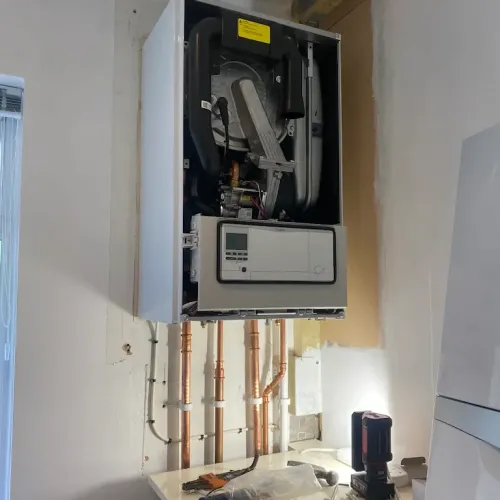
- Reduced energy bills: Modern boilers are more energy-efficient and can help you spend less on your monthly bills.
- Greater reliability: With a newer, more advanced heating system, you can expect fewer breakdowns and boiler repairs, which means less hassle and fewer surprise expenses.
- Enhanced safety: An old, worn-out boiler is more likely to have natural gas leaks and carbon monoxide issues. Getting a new boiler installed ensures the safety of your place and everyone in it.
Our new boiler installation process
Our aim is to make the boiler installation process as smooth as possible for our customers.
Here’s our process:
- Complimentary initial consultation: We’ll arrange a free consultation to evaluate your property and understand your requirements.
- Expert recommendation: We will suggest the most suitable boiler system for you, based on your needs and budget.
- Professional gas boiler installation: Our Gas Safe registered engineers will meticulously install your new boiler, ensuring all safety procedures are adhered to.
- Detailed testing: After the installation is finished, we will perform thorough tests to confirm everything is functioning accurately.
- Post-installation support: We are here to address any queries or worries you might have about your new boiler system after it’s been installed.
Why choose DWM Plumbing & Heating
Selecting an appropriate company for your boiler installation is vital.
Here’s what our customers appreciate about our services:
Our personalised approach guarantees your new boiler system aligns with your specific requirements and budget.
We focus on quick responses and efficient project completion to keep disruption to a minimum.
Our ongoing servicing plans ensure your boiler remains in peak condition.
We provide 24-hour call-outs without any call-out charges, so help is always on hand when you need it.
Our speciality is high-efficiency boiler systems that help you save money and decrease your carbon footprint.
Our free, no-pressure quotes give you clear and transparent pricing. We guarantee a fixed price during your first consultation, and that’s what you’ll pay—no surprises!
All our boiler installers are fully qualified Gas Safe engineers, meaning they are fully trained to work on gas systems and offer a secure, dependable, and professional installation every time.
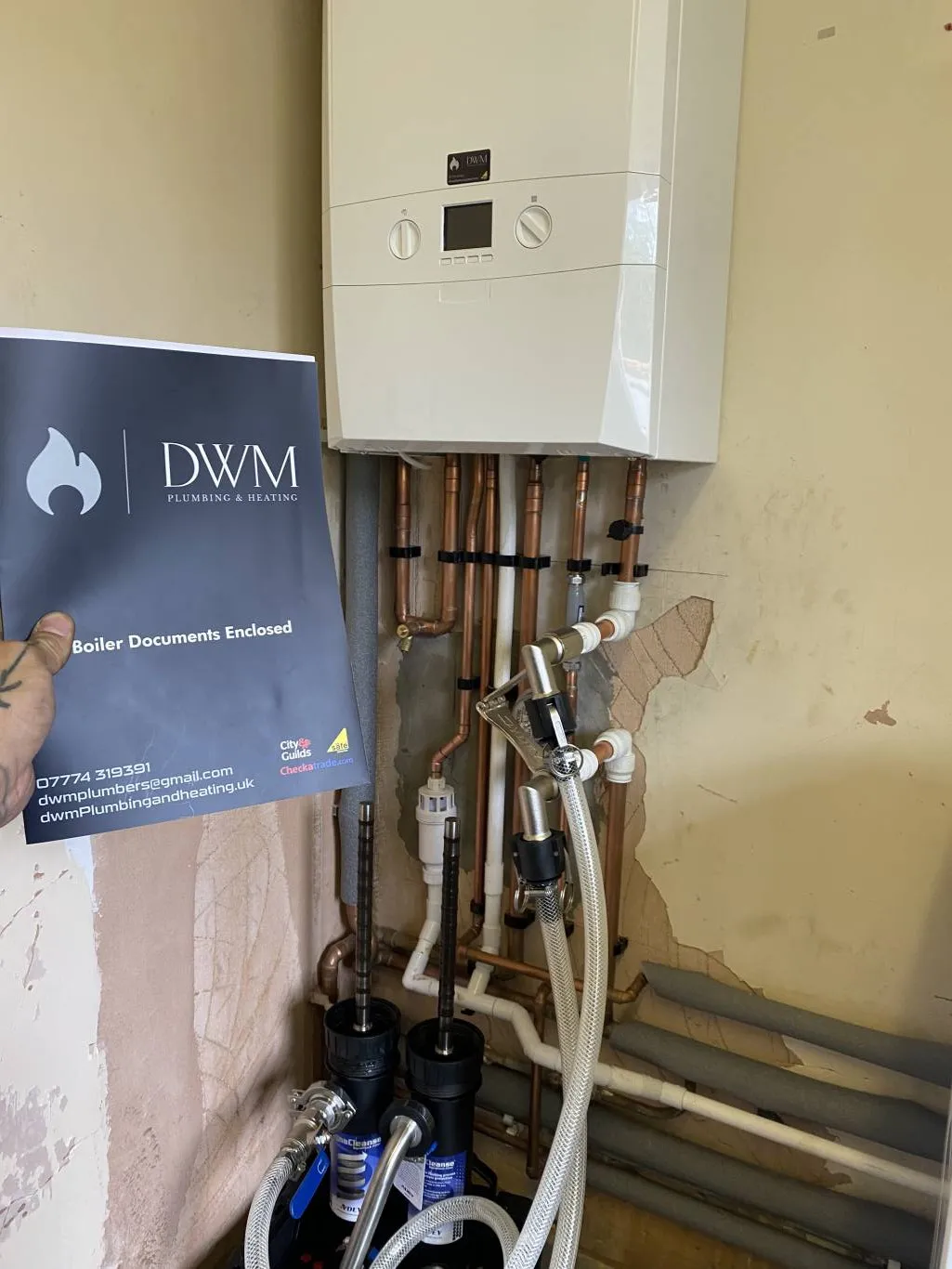
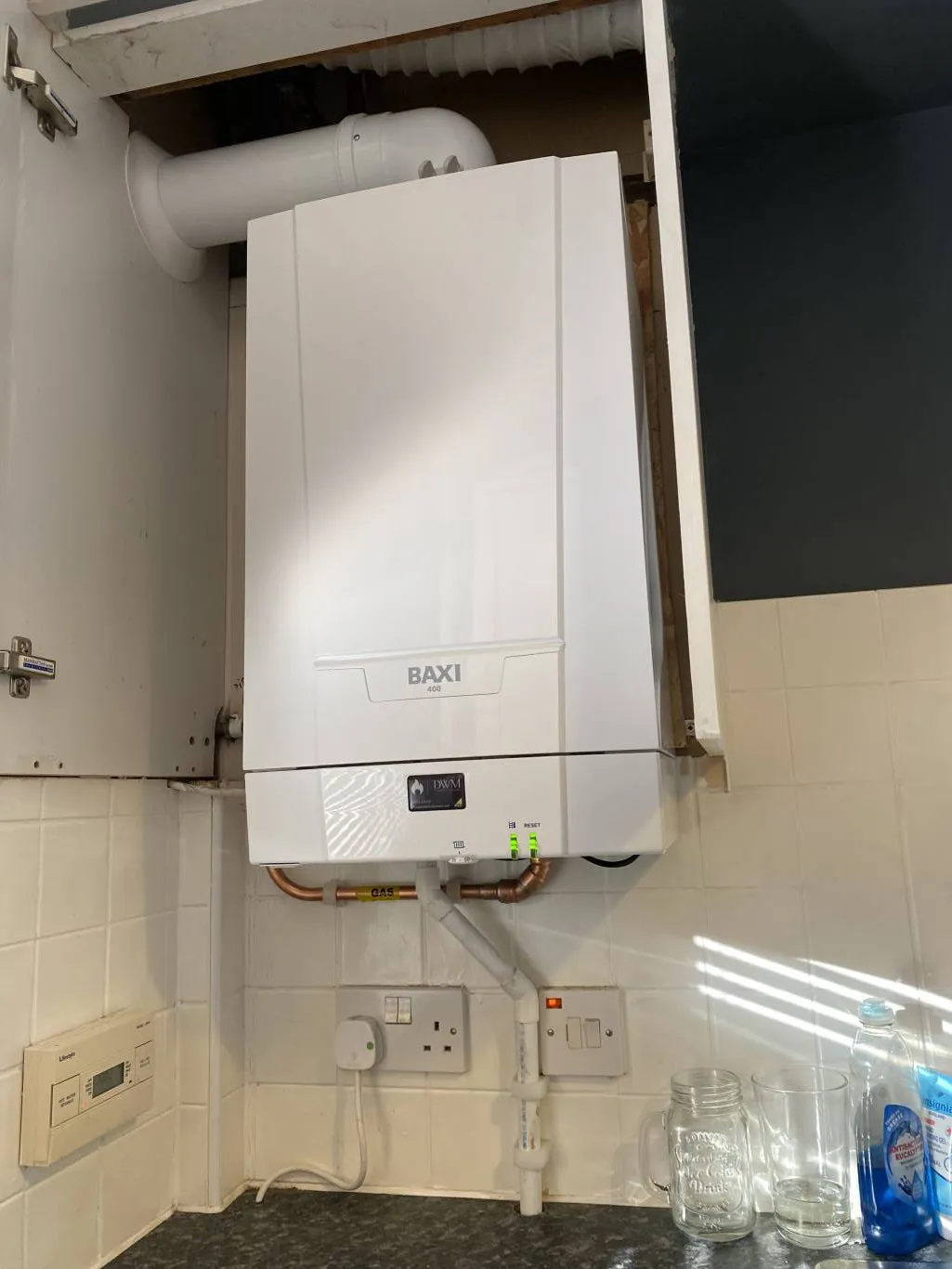
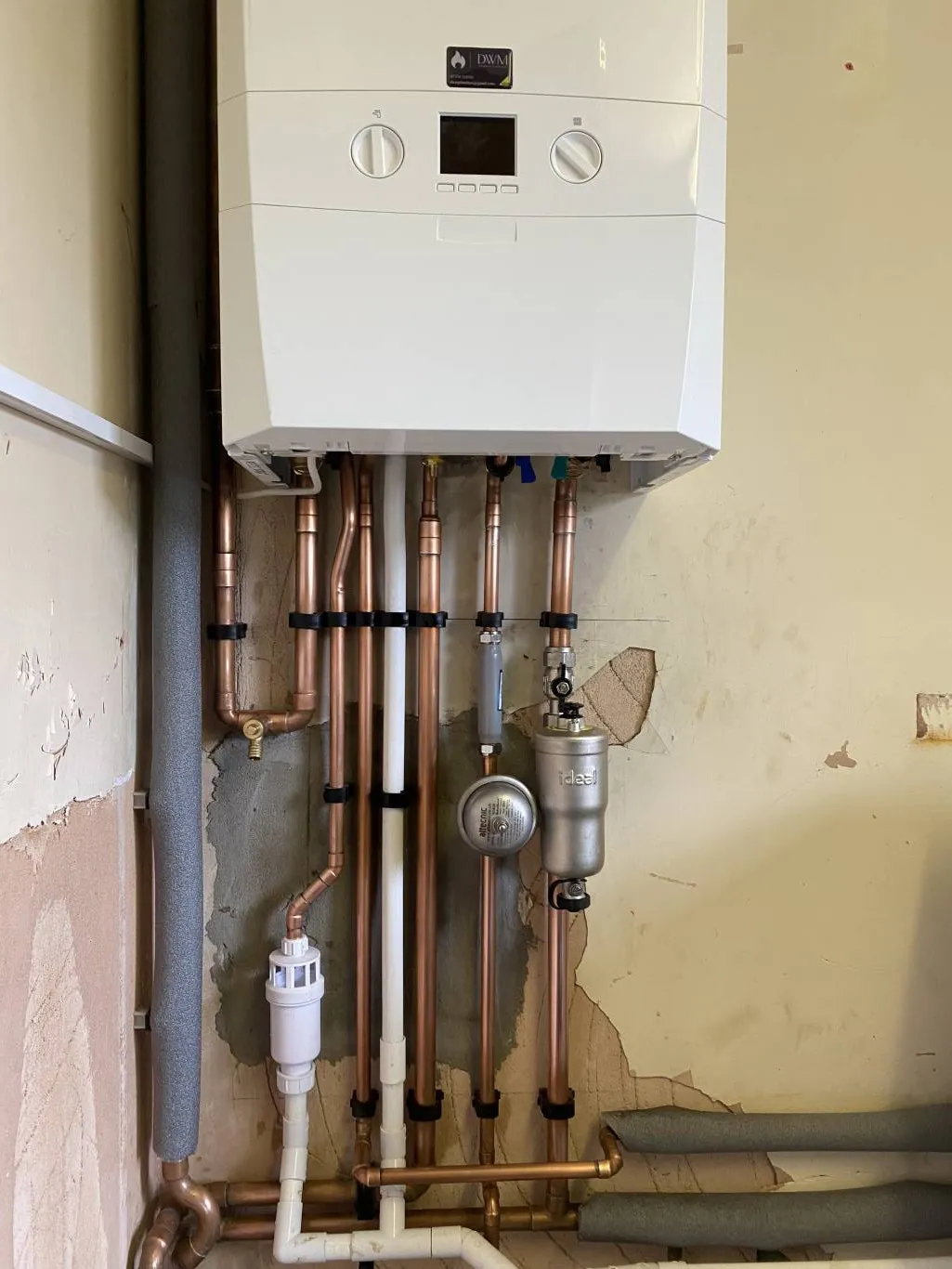
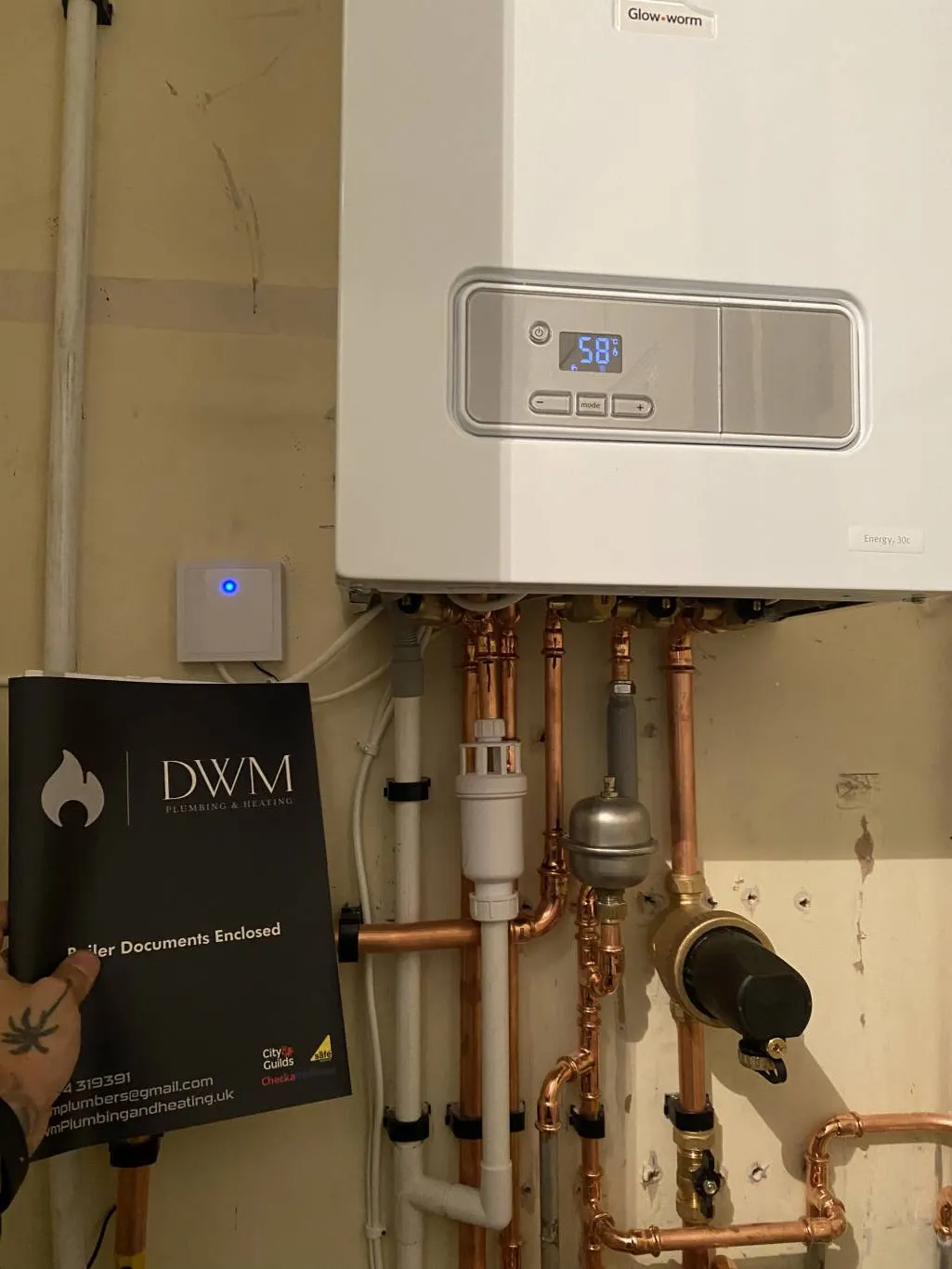
FAQ
How long does a gas boiler installation take?
The time period of a boiler installation hinges on various aspects, including the type of boiler and the intricacy of the installation. Generally, a standard installation can be completed within 1-2 days.
Do you offer maintenance services?
Yes, we provide a comprehensive annual boiler service as well as boiler repair and maintenance plans to ensure optimal operation and longevity of your boiler.
What are the main signs that I need to get my boiler replaced?
Signs that you might need a boiler replacement include:
- An old or obsolete central heating boiler
- Consistent breakdowns and repairs
- Escalating energy bills
- Intermittent hot water
- Unequal heating across your property
If you spot any of these signs, it’s advised to seek a professional’s recommendation.
What warranties do you offer on new boilers?
We furnish a manufacturer’s warranty with every new boiler installation, usually ranging from 5 to 10 years, dependent on the model and manufacturer.
This gives you peace of mind, knowing that your investment is protected against any unforeseen complications during the warranty period.
Shrink your bills today with a high-efficiency boiler from DWM!
Reach out to us now to get your complimentary, no-obligation quote and take the first stride towards a more comfortable and energy-efficient home or business.
